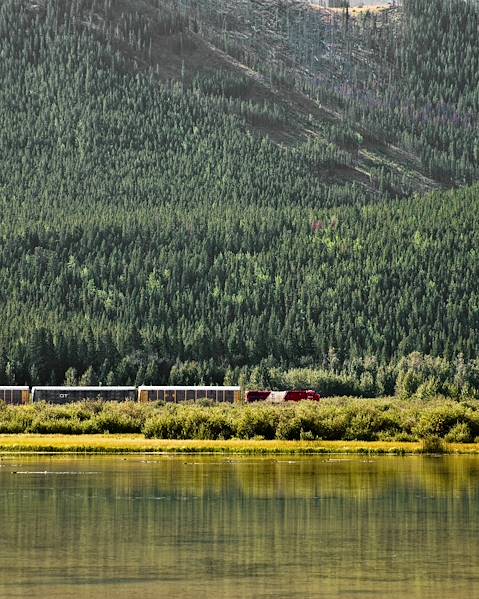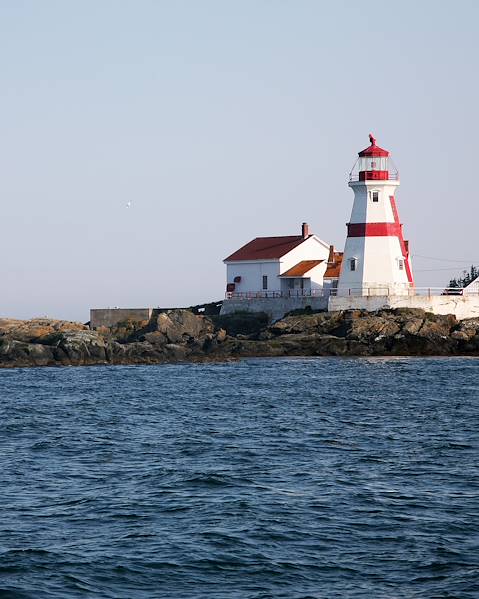If you’re looking for a destination that combines breath-taking landscapes, captivating cities and a commitment to sustainability, then Canada should be at the top of your travel bucket list. Proud custodians of their country’s natural wonders, Canadians recognise the importance of preserving their environment for future generations. From innovative green initiatives to conscious consumer choices, the North American powerhouse is making significant strides towards a more sustainable future. Here we explore different aspects of sustainability in Canada, the inspiring initiatives that are shaping a greener tomorrow, and what visitors can do to help.
Protecting the Environment
Canada has made big commitments to combat climate change and protect its natural resources. The country has ratified the Paris Agreement, pledging to reduce greenhouse gas emissions and transition towards a low-carbon economy. The government has implemented various policies, such as carbon pricing and investing in renewable energy, to achieve these goals. Canada has also set ambitious targets for biodiversity conservation, aiming to protect 25% of its land and marine areas by 2025.
The Renewable Revolution
Canada is harnessing its huge potential as a producer of renewable energy to reduce its reliance on fossil fuels. The country is a leader in hydroelectric power, with numerous dams and hydroelectric projects generating clean energy. Wind and solar power installations are also increasing across the country. Provinces like British Columbia and Quebec are investing heavily in renewable energy infrastructure, providing a blueprint for others to follow. Canada’s commitment to the renewable revolution is not only reducing carbon emissions but also creating job opportunities and economic growth.
Greener Transport
Transportation is a significant contributor to greenhouse gas emissions and Canada is actively promoting eco-friendly alternatives. Major cities like Vancouver, Toronto and Montreal have invested in green public transport systems such as electric buses and light rail networks, and visitors are encouraged to explore places on foot, bike or using public transport. Electric vehicles are also proving increasingly popular, with the government offering incentives and expanding the country’s charging infrastructure. Canada is aiming for all new passenger vehicles to be zero-emissions by 2040, a bold step towards a greener transportation sector. Something to bear in mind if you’re thinking of hiring a car in Canada.
Sustainable Agriculture and Food
The country’s agriculture sector is following suit, embracing sustainable practices to reduce its environmental impact. Organic farming is increasing, promoting soil health and reducing chemicals. Agroforestry systems, where trees are planted alongside or within agricultural fields, are proving popular too, helping to increase crop yields, enhance biodiversity and mitigate climate change. The farm-to-fork movement is also thriving in Canada, with consumers increasingly demanding locally sourced, organic and ethically produced food. In fact, Canada’s culinary scene is a melting pot of sustainability. From farm fresh restaurants in the Okanagan Valley to seafood shacks serving freshly caught Atlantic lobster in the Maritimes, locals and travellers alike will find a diverse range of sustainable dining options.
Waste and the Circular Economy
Circular economies aim to minimise waste and maximise efficiency, and here again Canada is leading the field. Innovations such as electronic waste recycling and large-scale composting projects are reducing landfill and promoting a more sustainable approach to waste management. The country has also implemented ‘extended producer responsibility’ initiatives where manufacturers oversee the entire lifecycle of their products, including recycling and disposal. Many provinces have banned single-use plastics, encouraging the use of reusable alternatives. Visitors will likely experience this when shopping in Canada, as many stores offer incentives to consumers who bring their own bags or reusable containers like coffee cups.
Indigenous Initiatives
Indigenous communities in Canada have long been connected to the land, practicing sustainable resource management for generations. Their traditional knowledge and customs are being increasingly recognised and integrated into modern efforts towards sustainability in Canada. Collaborations between indigenous communities and government agencies lead to sustainable land management, wildlife conservation and cultural preservation. Visitors can support local and indigenous communities by seeking out authentic cultural experiences such as powwows. Attending workshops and shopping at indigenous-owned businesses and farmers’ markets are other ways visitors can contribute to sustainability in Canada.
Eco-Friendly Accommodations
When it comes to sustainable travel, where you stay matters. Canada offers a range of eco-friendly accommodations that prioritise environmental responsibility. From cosy eco-lodges hidden in the wilderness, to LEED-certified (Leadership in Energy and Environmental Design) hotels in city centres, the country is loaded with lodgings that minimise their carbon footprint through energy-efficient practices, waste reduction and locally sourced materials. Additionally, there are simple steps all travellers can take to minimise the impact of their adventures. Everyday examples that aid sustainability in Canada include removing chargers from the mains once a gadget is fully charged; turning off all lights (plus the TV and air-conditioning) on leaving hotel rooms; eating and shopping local; and reducing energy consumption by re-using towels before they’re re-laundered.
By embracing sustainability, Canada is not only preserving its natural wonders but also setting an example for the world to follow. It also offers a world of responsible travel opportunities. Happy sustainable holidays!
















